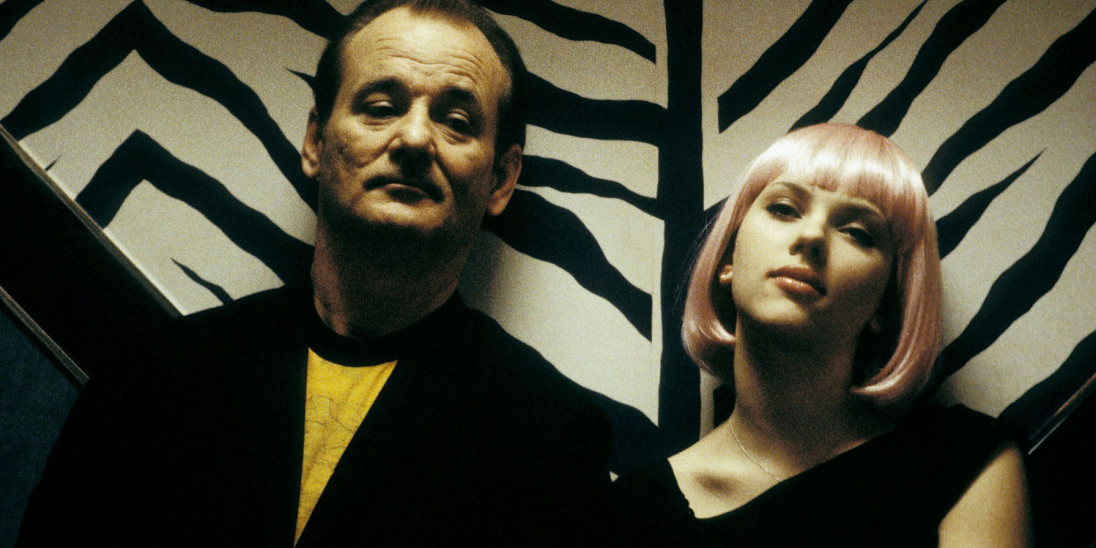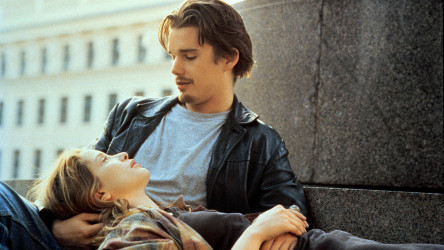Lost in Translation(2003)
Off-beat Tokyo-set romance about a past-it actor and a lonely newlywed featuring a stand-out performance from Bill Murray.
Certificate
Age group15+ years
Duration97 mins


“You've often heard me say——perhaps too often——that poetry is what gets lost in translation.”
— Louis Untermeyer
It seemed bizarre to me at first, when I saw the original title is not Lost in Tokyo, as that is what officially translated to my mother language. It is the kind of title that leads you to speculate that it is nothing more than a holiday comedy, especially when it starring with Bill Murray. The truth is, his part might carry some comedy elements, but the film is a hundred miles away from getting him a comedy award nomination.
My impression of the movie was, and is, everything seems vague. The whole emotional presentation is introverted at its best, there are not any dramatic conflicts introduced. Here comes Bob, an obsolete Hollywood star, observing the city with his drowsy eyes, through the cab’s window, and the large aperture and slightly out of focus are the elements that present the emotion. The director maximized the use of natural lighting, fixed camera angle and put the focus on performers themselves, it is just us peeping his life, as well Charlotte’s, when she was bored enough to peek the city through the large framed window. We are simply invited to witness the simmering tide in a boiling cauldron that brewed silently.
The part I like the most is how we experience that awkwardness through Bill Murray’s character. He was filming an advertisement, and he was assisted by an interpreter while working with a bunch of Japanese photographers. The photographer required him to do this or that with a lot of words and phrases, but the interpreter only came back with a simple sentence which leads Bob into confusion. No matter how hard Bob tried he still could not provides the “feel” that the photographer wanted. “Feeling” is a very vague term, especially when you express it with language, and merely interpreted——let alone translated——into a foreigners’ ears. For the first time, I started to understand the title and what is the “poetry” that had been lost here.
It is very pleasant to enjoy a slow-burner, especially when there is an absence of overdramatic incident. The entire emotion in the film is suppressed, but rationally. The relationship between the two does not embody by the expression, it is the characters’ inner activities, and then reflects on their actions. Slowly but surely, they achieve rapport. They both seek meaning in life, therefore they need each other to fulfil the emptiness, by actively looking for the thrill. Despite all that, with the unique storytelling, these “outgoing” emotions eventually complete each other, no matter how deep their relationship goes, there is nothing that could lead those subtle feelings to gather and burst at once, even til the end of the film, they depart, the constantly suppressed emotions still carries on.
Sofia Coppola combined Coppolas’ dark humour with Wong Kar-wai’s cinematography, in which she said that she utilized his work and how he processed the ending in In the Mood for Love. Just a touch of absurdism and the humour led by culture differences quickly sunder this film from other romantic, merit but obscure dramas, such unique handle of emotion and its chemical reaction with cinematic made it a masterpiece.
Incidentally, they did not subtitle the Japanese. Perhaps to those who do not know a thing about this language is lost, just like Bob and Charlotte. In that sense, we are just alienated as them.
Print this review
Charming, offbeat romance about a young tourist who persuades a French stranger to get off the train with him in Vienna to wander round for the night.
Certificate